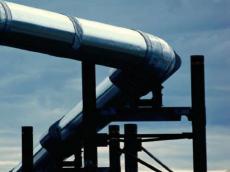|
|
TODAY.AZ / World news
Iran viewing different options for gas exports to Europe
05 May 2016 [12:19] - TODAY.AZ

By Fatma Babayeva
Iran prefers to export liquefied natural gas to the distant markets due to financial and security reasons but favors gas pipelines for transporting its gas to the neighboring countries, Jafar Jafar Pourfarjoud, press secretary of the Iranian Petroleum Ministry, told Trend news agency on May 4.
Iran is currently considering both options, said the spokesman of the ministry by adding Iran’s plans to purchase vessels for LNG transportation.
Meanwhile, the importance of Iran's hydrocarbon reserves in Europe's energy mix and its role in increasing Europe’s energy security were also emphasized by the Federica Mogherini, the EU’s High Representative for Foreign Affairs and Security Policy.
Iran’s gas may contribute significantly to the diversification policy of the EU currently being pursued in its energy markets.
Previously, planning director of the national Iranian gas company Hassan Torbati Montazeri said that Iran will build network of pipelines with a total length of five thousand kilometers in its territory during the next five years. However, the Islamic Republic needs $15 billion investment for it.
The country set a goal to export its natural gas to the EU in near future after the sanctions imposed by the Western countries were lifted.
Nevertheless, the country lacks necessary export infrastructure to realize gas sales. Currently, there is no transit gas pipeline connecting Iran with the EU.
Iran has several pipeline options. It may build a gas pipeline through Turkey. Even, some experts suggest Iran to use the Southern Gas Corridor and build a connection pipeline to TANAP instead of building a separate pipeline.
By joining TANAP, Iran is sure to strengthen Azerbaijan’s regional position as a transit country. This will not only bring economic benefits, but also political dividends that will be much more significant.
Iran also considers building gas pipeline to Oman where it can use the already existing LNG facilities to transport its gas to the global markets.
Moreover, the country sees Kuwait and UAE as potential buyers of its natural gas supplies as well.
In addition, Iran may build its own LNG facilities within two years, but this time frame seems unlikely.
Over past few months, Iranian officials have stressed numerously that they are negotiating with international companies about both renting and building the floating liquefied natural gas vessels. The country signed an agreement on building FLNG with a domestic company.
Although, some of the sanctions related to the nuclear policy of Iran have been lifted, some of them still remain in place. Iran’s purchase of U.S. technologies is prohibited currently.
Overall, Iran’s estimated gas reserves amount to 33.8 trillion cubic meters at the present. It owns 18.2 percent of the world’s total proven reserves.
URL: http://www.today.az/news/regions/150417.html
 Print version
Print version
Connect with us. Get latest news and updates.
See Also
- 21 December 2024 [19:40]
China mulls law revision to advance green development of fishery sector - 21 December 2024 [19:10]
Hanwha completes US$100 mln acquisition of Philly Shipyard of U.S. - 21 December 2024 [18:35]
LeBron James Becomes NBA's All-Time Leader in Minutes Played - 21 December 2024 [18:05]
Record 78% of people in Japan feel anxious, government survey finds - 21 December 2024 [09:00]
Sweden's Climate and Environment Minister calls for Shein and Temu to be banned in country - 21 December 2024 [08:00]
China mulls draft law to promote private sector development - 21 December 2024 [08:00]
Eating sweets turn out to be better for heart than giving up sugar - 20 December 2024 [23:45]
Turkiye receives exception from US for Gazprombank when paying for gas from Russia - 20 December 2024 [23:21]
"White Nights" become asensation on social media - 20 December 2024 [22:41]
China and Pakistan hold joint anti-terrorism exercises
Most Popular
 Azerbaijan, Colombia Discuss Cooperation in Various Fields
Azerbaijan, Colombia Discuss Cooperation in Various Fields
 Battle for the Caucasus: Azerbaijan needs a stable Georgia
Battle for the Caucasus: Azerbaijan needs a stable Georgia
 West has no interest in him: the United States has disowned Vardanyan
West has no interest in him: the United States has disowned Vardanyan
 Azerbaijani delegation attends "Vietnam Defence Expo 2024" in Hanoi
Azerbaijani delegation attends "Vietnam Defence Expo 2024" in Hanoi
 Armenian History in Crisis: Mirzoyan, Textbook and Colosseum
Armenian History in Crisis: Mirzoyan, Textbook and Colosseum
 Azerbaijan participates in 11th D8 Economic Cooperation Organization summit
Azerbaijan participates in 11th D8 Economic Cooperation Organization summit
 IDPs return to rebuilt Shusha as part of Great Return State Program
IDPs return to rebuilt Shusha as part of Great Return State Program
